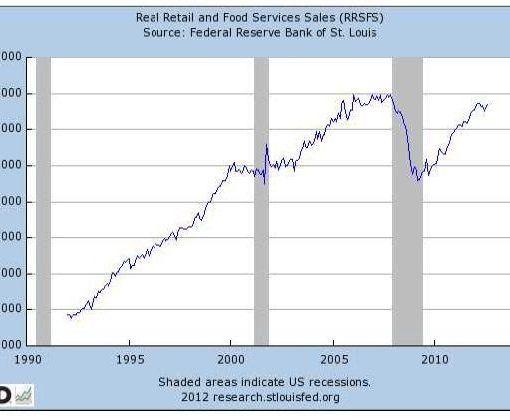Among the folksy guidance at the Berkshire Hathaway Annual Carnival, er, Meeting, earlier this month was Warren Buffett’s proclamation that bonds “are terrible investments now.”
With apologies to oracles everywhere, I personally believe that’s a reckless declaration for someone who holds such public sway. Yes, for some purposes bonds are bad investments – tiny yields, looming principal destruction and all that. And I believe some bonds are very bad investments at any time.
But to broadly declare, without qualification or distinction, that “bonds are terrible investments now” is irresponsible. In my opinion bonds, or fixed-income holdings generally, always have an important place in many, if not most, conservative portfolios.
“Anybody I would [advise], I would have them having enough cash on hand so they would feel comfortable, and then the rest in equities,” Mr. Buffett said.
Really? Anyone? Well, I’d be careful then, Warren. State securities commissioners frown upon such indiscriminate advice, devoid of consideration for age, net worth and risk tolerance. There is, you see, that niggling matter of suitability.
Sure, you can spout this stuff with impunity on TV, especially when you’re a mindlessly venerated demigod. And your avuncularity is, to use one of your favorite terms, another protective moat. But don’t offer such reckless counsel to specific individuals in the receiving line. Even you, jolly and revered octogenarian that you are, could get in trouble.
(Note that Buffett’s fuzzy remark about cash and feeling comfortable doesn’t clearly suggest whether he’s talking about cash within an investment portfolio, or simply cash to live on. I think most people would construe it as the latter.)
An unintended securities law breach might qualify as a mere venial sin under certain circumstances. But a greater faux pas was committed by Mr. Buffett. It is one of arrogance, the type that we regularly see among CNBC’s parade of grandstanding pontificators. “Buy this, sell that,” they bellow, without regard to viewers’ individual circumstances.
Amateur investors, and those who simply aspire to be amateur investors, flip on the financial channel and – too often – do whatever they’re told by the guy who happens to be on at that time. At 10:06 a.m. a very, very smart-looking fellow – wearing a fancy suit and tie – says, “Buy Microsoft!” Amateur investor turns off the TV and promptly does as he’s told. But he missed the even smarter-looking guy at 10:18 who countered that he wouldn’t touch MSFT with a 10-foot pole.
For ordinary people at home, financial TV is the equivalent of Short Attention Span Theater. They know they should be invested, but they don’t know have the slightest idea what to do, so they do what some smart guy on TV tells them to do. “Problem solved, now I’m going fishing.”
And when it comes to the smartest of them all, Warren Buffett, well … it’s not just pretty good advice. It’s gospel. Matthew, Mark, Luke, John and Warren.
Rest assured, then, that no sooner had the words crossed the Oracle’s lips on May 6 than legions of worshipers emptied their portfolios of any semblance of bonds.
For all of the speculation about succession at Berkshire Hathaway, Warren Buffett apparently thinks that people live forever. And while he can afford to think that, the people who hear him talking on TV can’t. They need to be invested prudently, or they risk losing their nest eggs. And I believe that means that some of them, e.g., octogenarians not named Warren Buffett, need to have bonds in their portfolios, even when returns are miniscule.
Contrary to Mr. Buffett’s recent counsel, one general rule of thumb is that the fixed-income percentage of a personal portfolio, excluding real estate, should equal one’s age. A 70-year-old would therefore be 70 percent in fixed-income (bonds, certificate of deposits, etc.) and 30 percent in equities. This is a maxim long espoused by the esteemed Jack Bogle, founder of the Vanguard Funds, and many other advisors (including yours truly).
Warren Buffett can afford to be invested 100 percent in stocks if he wants to be. But most older people shouldn’t be, in my opinion – particularly at a time when all-time highs are being set and there hasn’t been a significant correction in 50 months.
Now, a bond portfolio should certainly be designed sensibly. With rates so low, the danger, of course, is an eventual rise that would decrease principal values. But I personally believe that issue is manageable – keep maturities short so that you can potentially reinvest in new bonds as rates rise.
To the protestation that rates are so low that short-term bonds would lose out to inflation, I say that that’s manageable, too. First of all, even if they did lose a point or so to inflation, that’s better than experiencing a 10% correction in the stock market and then panicking out, as many people – especially older people – would do.
And the fact is that short-term bond investments aren’t necessarily being reduced by inflation today. The Vanguard Short-Term Corporate Bond Index ETF (VCSH) and the SPDR Barclays Short Term Corporate Bond ETF (SCPB) each currently yield 1% to 2% (as of 5/17), with the latest monthly inflation number (March) at 1.5%.
If you want to seek more yield with a portion of your bonds, in my opinion, who better to manage your fixed income investments than Jeffrey Gundlach or Bill Gross? I like Gundlach’s DoubleLine Opportunistic Credit Fund (DBL), currently yielding over 7%, and Gross’s PIMCO Income Strategy Fund II (PFN), that yields over 8%. Another option is the Stable High Yield portfolio that I manage at Covestor.
Mr. Buffett is roundly celebrated as an investment maven, which may be true enough. What he is not, however, is an advisor for the individual investor, and I don’t believe he should be giving unmitigated general advice on TV to wide-eyed individual investors, especially when his advice, by virtue of being so sweeping, is simply wrong.
Photo: trackrecord
Yields quoted are intra-day on May 17, 2013. The investments discussed are held in client accounts as of May 1, 2013. These investments may or may not be currently held in client accounts. The reader should not assume that any investments identified were or will be profitable or that any investment recommendations or investment decisions we make in the future will be profitable.




